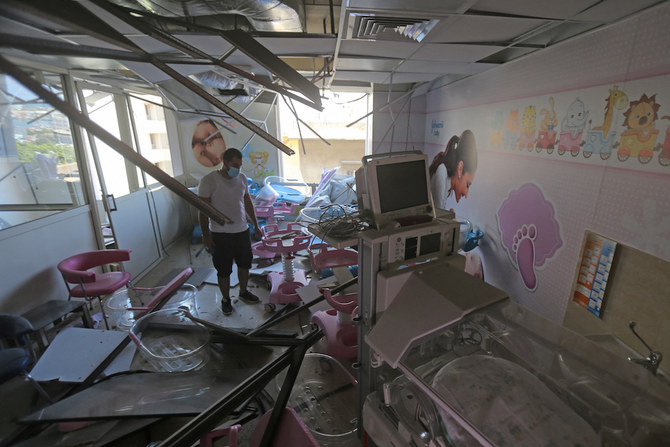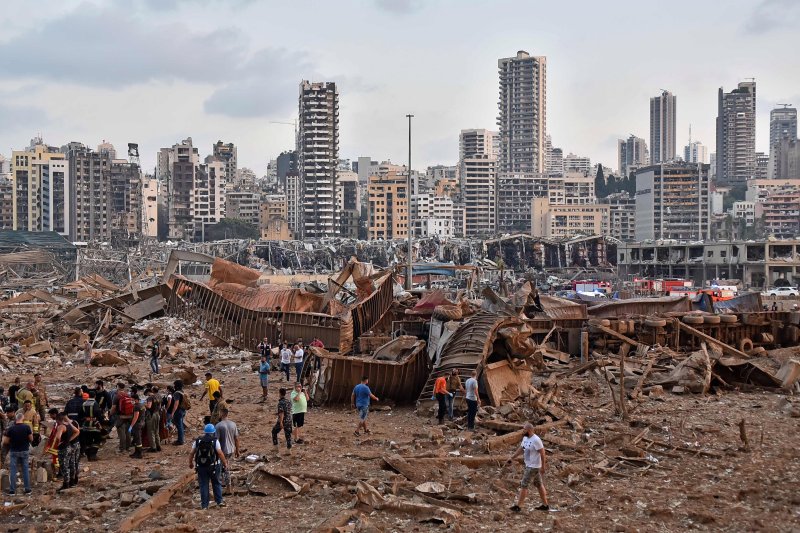by english.aawsat.com — Acclaimed Lebanese singer Sammy Clark passed on Sunday after suffering heart problems. Clark, 73, was a singer, composer and …

By LEEN FOUAD -- arabnews.com -- LONDON: Lebanon’s health system is in a precarious state following wave upon wave of political and economic crisis. As the country reels from medical supply shortages, COVID-19 case surges and an exodus of skilled medical professionals, the urgency of the sector’s need for outside help is no longer a matter of debate. In most countries, it might seem reasonable to look to the government to implement reforms to rescue the health system from collapse. But in Lebanon, where it is arguably politics itself that is making the nation sick, the embattled state is unlikely to offer solutions. A new study led by King’s College London and the American University of Beirut suggests Lebanon’s health system is in decline thanks in large part to the same disastrous political decisions and systemic problems that led to the country’s 2019 economic collapse. The study, “How politics made a nation sick,” conducted by the Research for Health in Conflict–MENA project (R4HC-MENA), shows how a series of politically driven disasters has created a crisis state that is unprepared to deal with a deepening public-health emergency.
Dr. Adam Coutts, one of the R4HC-MENA project leads, describes the health situation in Lebanon as “a slow moving trainwreck, which sped up in the pre-pandemic period when the economy collapsed in 2019.” Ever since the end of Lebanon’s civil war in 1990, sectarianism, clientelism and corruption have dominated political life and driven the country into successive bouts of unrest and instability. Corruption, hyperinflation and the 2019 banking sector collapse have plunged Lebanon into the worst economic crisis in its modern history. The arrival of millions of refugees from neighboring Syria has only compounded the strain on its creaking infrastructure. About 19.5 percent of Lebanon’s population of 7 million are refugees from neighboring countries. Already living precariously in impoverished communities, few of them have the means or the connections to obtain vital medications at a time of scarcity.
وفي اليوم السابع … تحت عنوان ” صنع في لبنان ” وفي ظل تعثر صناعة الامل ولقمة العيش والطاقة الاصلية والبديلة، تزدهر …

by ship-technology -- CMA CGM Group’s wholly-owned unit CMA Terminals has received a concession to manage, run and maintain the Port of Beirut’s container terminal following a bidding process. The contract will be valid for ten years and take effect from next month. At present, the firm contributes nearly 55% of the container terminal’s volumes, with nine weekly calls and transhipment operations. The group has laid down an investment strategy for renewing and upgrading the terminal. This includes an investment of $33m in the container terminal of Beirut Port, with $19m invested during the initial two years. The funds will be used to replace, renew and purchase new port equipment. A new technical facility will be established for providing maintenance and storing spare parts.
The terminal will be equipped with the newest management, optimisation and interconnection systems. Efforts will also be made towards increasing the terminal’s environmental performance by buying greener and more eco-friendly equipment. In a statement, CMA CGM Group said: “Winning the contract to manage, operate and maintain the Port of Beirut’s container terminal is part of the CMA CGM Group’s strategy of developing its terminal business while supporting the growth and efficiency of its shipping lines, consolidating its end-to-end service offering and establish greater control over the logistics chain so that it can offer its customers higher-quality, integrated, digital and more environmentally-friendly services in a context that requires a comprehensive approach to the supply chain.”
Khazen History


Historical Feature:
Churches and Monasteries of the Khazen family

St. Anthony of Padua Church in Ballouneh
Mar Abda Church in Bakaatit Kanaan
Saint Michael Church in Bkaatouta
Saint Therese Church in Qolayaat
Saint Simeon Stylites (مار سمعان العامودي) Church In Ajaltoun
Virgin Mary Church (سيدة المعونات) in Sheilé
Assumption of Mary Church in Ballouneh
1 - The sword of the Maronite Prince
2 - LES KHAZEN CONSULS DE FRANCE
3 - LES MARONITES & LES KHAZEN
4 - LES MAAN & LES KHAZEN
5 - ORIGINE DE LA FAMILLE
Population Movements to Keserwan - The Khazens and The Maans
ما جاء عن الثورة في المقاطعة الكسروانية
ثورة أهالي كسروان على المشايخ الخوازنة وأسبابها
Origins of the "Prince of Maronite" Title
Growing diversity: the Khazin sheiks and the clergy in the first decades of the 18th century
Historical Members:
Barbar Beik El Khazen [English]
Patriach Toubia Kaiss El Khazen(Biography & Life Part1 Part2) (Arabic)
Patriach Youssef Dargham El Khazen (Cont'd)
Cheikh Bishara Jafal El Khazen
Patriarch Youssef Raji El Khazen
The Martyrs Cheikh Philippe & Cheikh Farid El Khazen
Cheikh Nawfal El Khazen (Consul De France)
Cheikh Hossun El Khazen (Consul De France)
Cheikh Abou-Nawfal El Khazen (Consul De France)
Cheikh Francis Abee Nader & his son Yousef
Cheikh Abou-Kanso El Khazen (Consul De France)
Cheikh Abou Nader El Khazen
Cheikh Chafic El Khazen
Cheikh Keserwan El Khazen
Cheikh Serhal El Khazen [English]
Cheikh Rafiq El Khazen [English]
Cheikh Hanna El Khazen
Cheikha Arzi El Khazen
Marie El Khazen